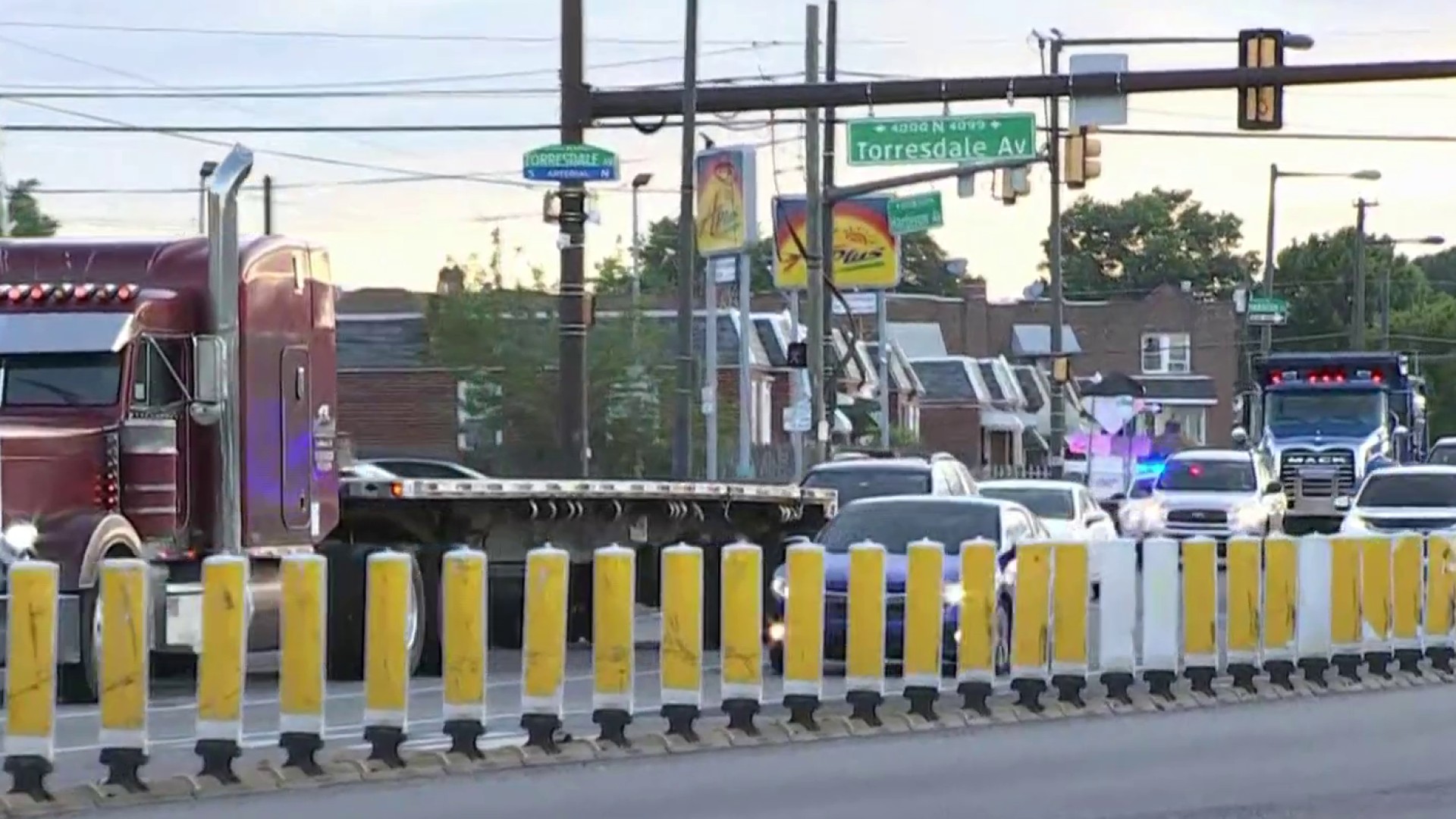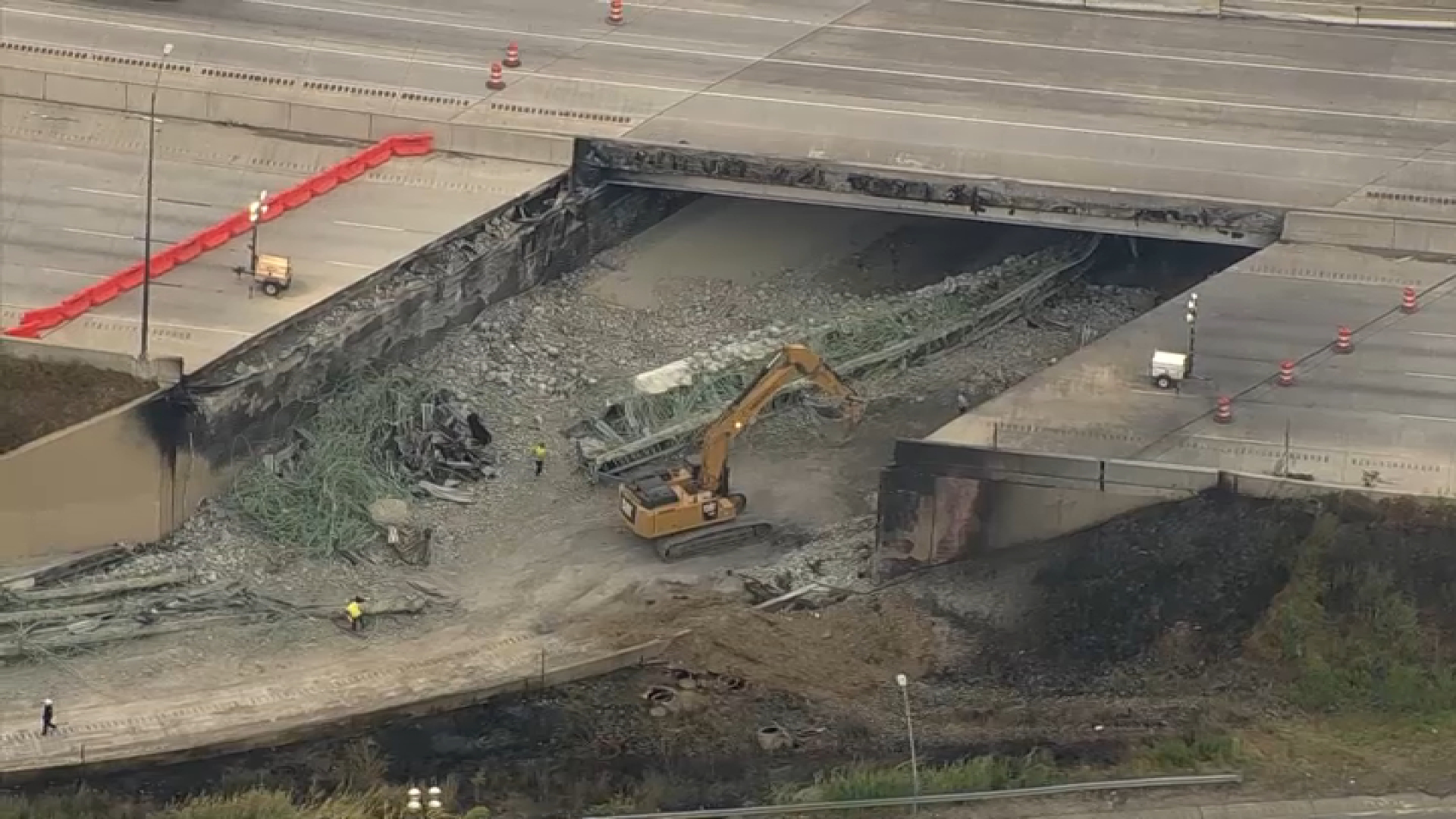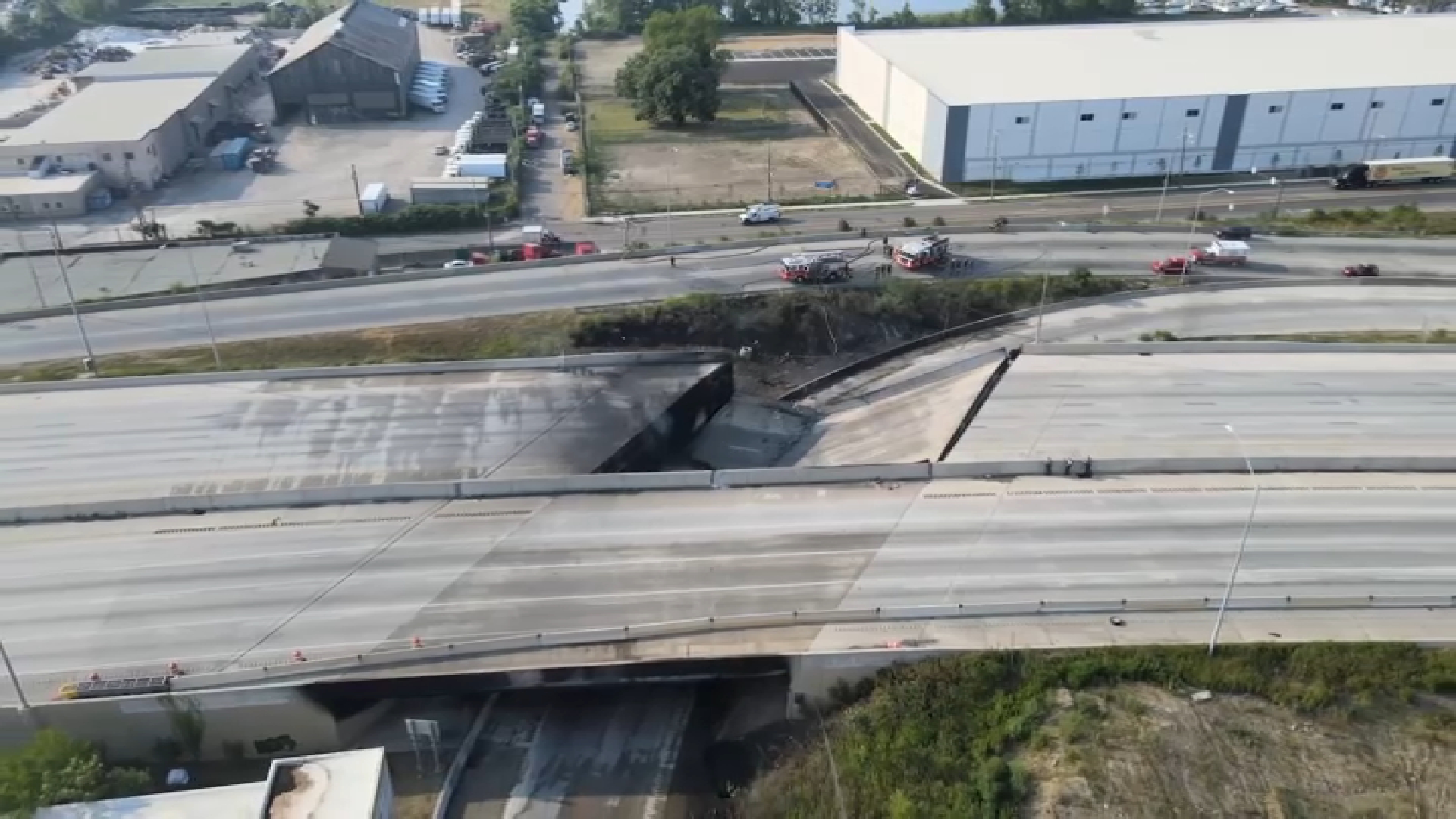Drivers began longer commutes Monday after an elevated section of Interstate 95 collapsed in Philadelphia following damage caused by a tanker truck carrying flammable cargo catching fire Sunday morning.
And, all that extra travel time and changes to routine will wind up costing commuters.
Sunday's fire closed a heavily traveled segment of the East Coast’s main north-south highway indefinitely -- with Pennsylvania Gov. Josh Shapiro saying he expects the closure of I-95 to last for "months."
Get top local stories in Philly delivered to you every morning. >Sign up for NBC Philadelphia's News Headlines newsletter.
“This is really going to have a ripple effect throughout the region,” AAA spokesperson Jana Tidwell said Monday. She advised people to avoid peak travel times.
Tidwell also anticipated that drivers will incur additional costs — “more gasoline, more wear and tear on their cars, additional tolls, in terms of leaving Pennsylvania into New Jersey and then back into Pennsylvania."
Your guide to traveling around I-95 closure
SEPTA said it was operating three extra morning and late afternoon trains on its Trenton, New Jersey, line, and adding capacity to regularly scheduled lines during peak hours “to help support the city and region's travel needs” following the collapse.
However, even with free parking at some of its hub stations, the cost to ride SEPTA could also be a new one for some people looking to avoid the road closure.
Transportation officials warned of extensive delays and street closures and urged drivers to avoid the area in the city's northeast corner. Officials said the tanker contained a petroleum product that may have been hundreds of gallons of gasoline. The fire took about an hour to get under control.
The northbound lanes of I-95 were gone and the southbound lanes were “compromised” by heat from the fire, said Derek Bowmer, battalion chief of the Philadelphia Fire Department. Runoff from the fire or perhaps broken gas lines caused explosions underground, he added.
Some kind of crash happened on a ramp underneath northbound I-95 around 6:15 a.m., said state Transportation Department spokesman Brad Rudolph, and the northbound section above the fire collapsed quickly. A massive concrete slab fell from I-95 onto the road below.
Gov. Josh Shapiro said his flight over the area showed “just remarkable devastation.”
"I found myself thanking the lord that no motorists who were on I-95 were injured or died,” he said.
On Monday, the first-term Democrat signed an emergency declaration to get the repair process going.
"We are all hands on deck to repair I-95 as safely and as efficiently as possible," Shapiro said.
The collapsed section of I-95 was part of a $212 million reconstruction project that wrapped up four years ago, Rudolph said.
Motorists were sent on a 43-mile detour Sunday, which was going “better than it would do on a weekday," Rudolph said. The fact that the collapse happened on a Sunday helped ease congestion.
Pennsylvania Transportation Secretary Michael Carroll said the I-95 segment carries roughly 160,000 vehicles per day and was likely the busiest interstate in Pennsylvania.
Sign up for our Breaking newsletter to get the most urgent news stories in your inbox.




